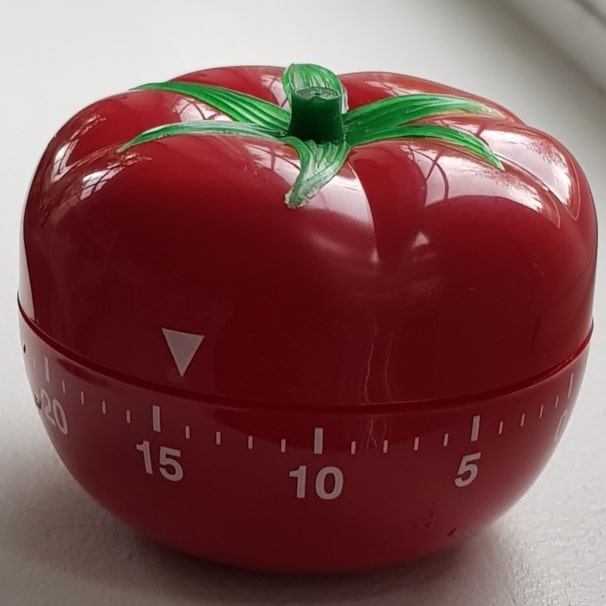These were the words semi-shouted at me by my exasperated dissertation supervisor back in 2005. The discussion had followed the usual pattern – me highlighting all my ideas and then listing all the excuses why I hadn’t done a thing!
Often, these words ring in my head when I’m finding distractions or delaying tactics. They always make me smile; sadly they rarely make me do some work! And it’s just not work – sometimes it’s leisure activities that I really enjoy, like yoga or a daily walk.
I’m Emma, and I’m a procrastinator. Appropriately, overcoming procrastination is the topic for this overdue blog. And if you’re struggling to make your good intentions a reality, it might be of interest.
What is procrastination?
According to Dr Joseph Ferrari PhD, a expert on procrastination, it is:
“…a tendency to delay the start or completion of a desired task to the point of experiencing discomfort. It leads to dysfunctional ways of being and a reduced quality of life. Procrastination is not the same as waiting, postponing or delaying.” 1
Significantly that definition highlights the negative side of procrastination. It’s often seen as a trivial issue but its impact can be profound. Research has shown chronic procrastinators can have compromised immune systems, increased gastrointestinal problems and insomnia. And that’s not all – it can also have a detrimental effect on relationships in the workplace and personal life.2
I’m not sure I’m a chronic procrastinator, but it is something that I find frustrating at times. I’ve always been a bit of a last minute person and I can recognise many of the traits common to procrastinators.3
Which procrastination traits do you have?
A procrastination flare-up!
I’m an Avoider with a touch of Thrill-Seeker – in the past, I often found that I couldn’t get motivated until the last minute when the adrenaline would kick in.
Over the years, I felt that my procrastination had improved. With age and a bit of self development work, I’ve become a little less fearful of failure; a little less concerned what people think. I can still be prone to ducking out of a task unless I can do it 100% or if I’m not in the right mood, but I’m more flexible on this. I have much less tolerance for stress now, so I’m kinder with my scheduling, leaving myself more time to get the job done.
So all sorted then? Well, not quite…
When I started preparing to return to work, with my coaching coursework and the tasks involved in creating a new business, I reached new levels of procrastination! And I just couldn’t understand it – I was so excited about what I was doing, and I really enjoy getting a new business up and running. Even doing the fun stuff was getting difficult, like daily walks and yoga stretches.
I wanted to do all of these things; I enjoyed doing all of these things, but I just couldn’t seem to do them. What was going on?!
Procrastination as an act of kindness
So it seems that procrastination is a problem with emotion regulation4. The thought of a task can stir negative emotions such as frustration, resentment, boredom, fear or anxiety. This causes a part of our brain to try and regulate this by providing a distraction or soothing technique. It’s a “mis-regulation” because sadly the tasks don’t tend to go away – they are just delayed.
So when you pick up your phone to scroll through Instagram,or find yourself making yet another cup of tea, it’s your autonomic nervous system trying to soothe you. This can be referred to as the Survival Brain, or the amygdala. It’s seen as the home of our “flight or fight” response and its responses are not conscious. It has no concept of time or nuanced emotions; it just perceives the emotional discomfort as a THREAT so tries to take you out of harm’s way.
Tim Clare explains this brilliantly on Scroobius Pip’s Distraction Pieces podcast (at about the 1 hour 20 minute mark), based on the research of Dr T Pychyl PhD from the Procrastination Research Centre (yes, really!).5
Procrastination is an issue of MIS REGULATION rather than UNDER REGULATION. That is to say, this isn’t about being lazy, or unproductive, or useless, or crap (I’m sure the things you say to yourself in the midst of all this is worse – I know mine are). Actually, it’s a real skill of the body’s limbic system to protect you and to keep you safe. Essentially, it’s an act of kindness or at least self-protection.
So when I had my procrastination flare-up, I think it was because my Survival Brain was making a link to when my illness was at its worst. It felt these tasks relating to work would take me back to a place of pain and fatigue. And this then seemed to spread to any activity which pushed me in some way.
So how can we overcome procrastination?
There’s load of specific advice out there about overcoming procrastination and it’s worth doing some digging to see what resonates with you. However, if what you’re doing is triggering the limbic system then the tactics can just end up being a bigger stick to beat yourself with. Yet another wall planner or scheduling app to is not going to solve this!
There are some key strategies that have been proven to help, and I’ve also included here some things I’ve found useful – taken from my own coaching work, research and the Tim Clare’s advice (based on the work of Dr Pychyl):
1. Quieten the self-critical voice
it only makes things worse. My number one suggestion is kindness and self compassion. The Survival Brain will perceive the emotions of anger and frustration as a threat and work even harder to keep you away from the task in hand. Recognise that what’s going on is actually a helpful response and is done with the best intentions. It is under your control but it’s NOT YOUR FAULT. As Dr Pychyl says, “without forgiveness, we’re motivated to avoid.”6
2. Go gently
You have to cajole this part of your brain into understanding there is no threat. If you do too much too soon, it is activated again. So keep things small and manageable. Tim Clare uses the phrase “what’s my next action?” to do this. Rather than thinking he’s about to sit down and write a novel, or a chapter or even a paragraph, “what’s my next action?” might just be – sit down at the computer, switch the computer on, open Word document, generate 10 random title ideas, etc. Just nice and gentle forward steps.
3. Just get started6
“What’s my next action?” really helps with that. Tim Clare also uses the question “better, worse, same?” when assessing whether to do something. After doing this, will you feel better, the same or worse? If the answer, based on previous experience, is the same or better, do it!
4. Try the Pomodoro Technique
Along the lines of “what’s my next action?”, I find my own version of the Pomodoro Technique really useful. This is a time management technique which breaks down the working day into 25 minute chunks (“pomodoros”) with a five minute break between. To keep things to a “non-threatening” level, I’ll set a time which doesn’t activate my limbic system and this will alter depending on the task or how I’m doing that day. I might try 15 minutes, or 30 minutes or it might just be 2 minutes. I set my lovely tomato timer and off I go. There’s heaps of apps out there to help with this but I’ve gone for an old school kitchen timer – I love how tactile it is, the ticking spurs me on and it keeps me away from using my phone.
5. Check in regularly
If all’s going well at the end of a “pomodoro”, I can check in with myself to see if I want to take a break, stop the task completely or do another one straight away. Personally, I find the key is not to have any expectations, like “I’ll do 4 x 15 minutes sessions here” as the Survival Brain will put a stop to it. It’s more about making clear agreements each time and checking in regularly.
6. Practice mindfulness
can be a really powerful tool. It has been proven to shrink the size of the amygdala7. Ruby Wax speaks very eloquently about this based on her PhD research in her books and on podcasts – do check them out. Essentially, it seems to calm the limbic system so it isn’t activated quite so easily or as quickly. A daily practice in whatever form works for you can be really helpful.
7. “Pre-empt that which tempts!”
More great advice from Dr Pychyl. In other words, identify your potential stumbling blocks and get rid of them. Get your gym stuff ready, put your phone in another room, disable your email for a certain time period, close the door on that messy room – spot your weaknesses and remove them. Dealing with these things may “only take a minute” but they’re going to stop you doing what you want to do.

My glorious Pom!
Sorry this blog is a bit long-winded but I find it super interesting – hope you do too! I know I’m not the only one battling with procrastination. And I know this really works. Initially, I felt frustrated at not working until a task is completed but now I can see that doing short, timed periods of activity is actually far more productive. I’m more efficient as I keep focus better and am spurred on by the time limit – and the ticking! Plus it’s really satisfying to turn my hand to more things in a day. My capacity keeps increasing as my system learns that, really, there is no threat from writing a blog!
Why not give some of these techniques a go? Do get in touch if you want some extra help getting on top of your own procrastination – coaching can help you work out what’s going on, why and what to do about it.
References:
- Ferrari, J PhD – The Academic Minute – 26 October 2018 – “Procrastination”
- Marano, HE – Psychology Today – 23 August 2003 – “Procrastination: Ten Things To Know”
- Marano, HE – Psychology Today – 1 October 2003 – “Ending Procrastination”
- Pychyl, TA PhD – Psychology Today – 26 April 2017 – “Emotion Regulation Skills Reduce Procrastination”
- Clare, T – Distraction Pieces – 8 May 2019 – “Distraction Pieces Podcast with Scroobius Pip #266”
- Pychyl, TA PhD – Medium Psychology – 26 April 2017 – “How to Use Psychology to Solve the Procrastination Puzzle”
- Taren, AA, Creswell, JD & Gianaros, PJ – PLOS ONE – 22 May 2013 – “Dispositional Mindfulness Co-Varies with Smaller Amygdala and Caudate Volumes in Community Adults”





This is super-interesting. I can really resonate with the idea that our body is trying to keep us safe from harm. I’m in a period of deep procrastination (again) with report writing. I find it really easy to do all the field work, the travelling, the relationship building etc., and less easy, but doable to do the prep work prior to the field work. But the reports! I really do believe that I am exhausted just by thinking about the tasks. I’ve not been well in any case – and working through it. But if I can work through some parts of the overall tasks, some of which are much more physically demanding than the report writing, then why not the reports! I’m going to try the pomodoro approach and will get a timer (another procrastination?).
For me, the key is keeping things in bite-sized chunks. Give the Pom a go and let me know how you get on!
Thank you Emma! I know I am and always have been a procrastinator.
We can defeat it! Or at least keep it to a level where it doesn’t cause problems – that’s been my goal. Let me know if you try any of the techniques and how they work for you.
Such a great article, Emma, backed up with some excellent research.
Thanks Alisa, really appreciate your kind words.